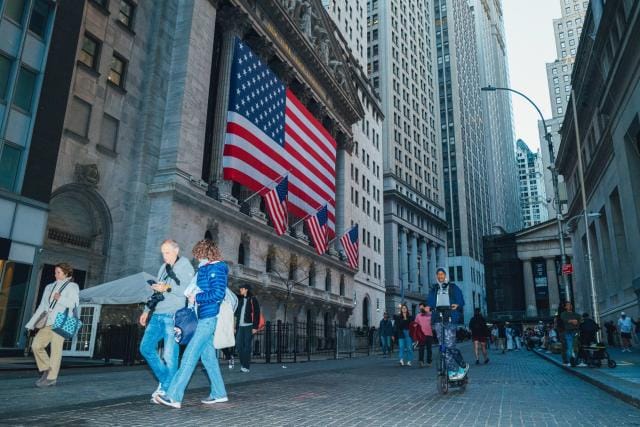Treasury Yields Surge as Inflation Concerns Resurface with Trump’s Policies
U.S. Treasury yields climb amid inflation worries fueled by Trump’s fiscal policies. What’s next for the bond market?

Treasury Yields Surge Amid Inflation Fears as Trump’s Policies Take Center Stage
U.S. Treasury yields are climbing once again as investors turn their attention to growing inflation concerns, reignited by the potential impact of Donald Trump’s fiscal policies. Following Trump’s victory, bond markets have seen renewed volatility, with two-year Treasury bonds leading the declines, as their yield jumped by as much as eight basis points to 4.33%, the highest level since July.
This rise in Treasury yields reflects investor worries that Trump's policies—such as tax cuts and tariffs—could trigger higher inflation, which would put pressure on bond prices. In response, traders are closely monitoring upcoming inflation data and the latest comments from Federal Reserve policymakers.
Inflation Concerns and Trump’s Fiscal Agenda
The bond market’s recent slump is largely driven by expectations that inflation may have accelerated in October. Data scheduled for release this week is expected to show a slight uptick in consumer prices, sparking further concerns about inflationary pressures. The Minneapolis Fed President Neel Kashkari recently acknowledged that while inflation has come down, the U.S. economy still faces challenges, indicating that the Fed’s fight against inflation is ongoing.
As traders assess these risks, there’s growing uncertainty about the potential effects of Trump's economic policies. Evelyne Gomez-Liechti, a strategist at Mizuho International, expressed concern that Trump’s proposals could fuel further inflation, noting that Treasuries “are still not out of the woods.”
Will Trump’s Fiscal Plans Lead to Higher Bond Yields?
Investors are increasingly worried that Trump’s proposed tax cuts and government spending could lead to a widening federal budget deficit. If Trump follows through on his promise to make his 2017 tax cuts permanent, it could increase the demand for Treasury bonds, pushing up yields in the process.
According to economist Nouriel Roubini, Trump’s return to power could spark the return of “bond vigilantes”—investors who demand higher yields in response to excessive government spending. If Trump pushes ahead with massive fiscal measures without offsetting them with spending cuts, bondholders may begin demanding higher yields to compensate for the rising budget deficit.
Federal Reserve Rate Cuts and the Bond Market Outlook
The recent rise in Treasury yields has prompted market participants to reassess their expectations for future Federal Reserve interest rate cuts. Despite bets on another quarter-point rate cut in December or January, traders are scaling back their expectations for more substantial cuts in the coming years. Some analysts now anticipate 10 basis points fewer rate cuts two years ahead, reflecting the uncertainty surrounding both the Fed's actions and Trump's economic agenda.
George Catrambone, head of fixed income at DWS Americas, commented that the bond market is likely to remain influenced by the election results. He advised investors to wait for more clarity on policy decisions before making major moves.
Wall Street’s Neutral Stance
Given the uncertainty surrounding Trump’s policies, Wall Street strategists remain largely neutral on their bond market recommendations. Leading financial institutions like Citigroup, JPMorgan Chase, and Morgan Stanley are all taking a wait-and-see approach, maintaining neutral positions on bond duration for the time being.
As the bond market navigates these challenges, investors are advised to keep a close eye on potential shifts in U.S. fiscal policy and any signals from the Federal Reserve.
Key Takeaways:
- U.S. Treasury yields are climbing as inflation concerns resurface after Trump’s election win.
- Trump’s fiscal policies—including tax cuts and tariffs—are fueling worries of rising inflation.
- Inflation data due this week could show an acceleration in consumer prices, intensifying these concerns.
- Investors are monitoring the possibility of bond vigilantes returning if Trump’s policies push up government debt.
- Despite uncertainty, Wall Street remains neutral on bonds as it waits for clearer policy signals.
